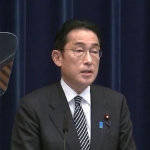
Japan is facing a dilemma of how to attract more foreign workers to fill its labor shortage, as the country is no longer the preferred destination for many migrants, according to a business magazine.
Toyo Keizai (Dec 2) reported that Japan is losing its appeal for foreign workers due to its low wages, harsh working conditions, and language barrier, compared to other countries in Asia and beyond.
The magazine cited a survey by the Japan External Trade Organization (JETRO), which showed that the average monthly salary of foreign workers in Japan was 247,000 yen (US$2,200) in 2020, lower than that in Singapore, Hong Kong, Taiwan, and South Korea.
The survey also found that Japan ranked the lowest among 20 countries in terms of the satisfaction level of foreign workers, with only 37 percent saying they were satisfied or very satisfied with their work environment.
The magazine quoted several foreign workers who shared their frustrations and difficulties of working in Japan, such as long working hours, overtime without pay, discrimination, and lack of career advancement opportunities.
Some also complained about the lack of support for learning Japanese, which is essential for communication and integration in the society.
The magazine said that Japan needs to improve its working conditions and wages, as well as its language education and social welfare, to attract and retain more foreign workers, especially skilled and professional ones.
The magazine also said that Japan should learn from other countries that have more open and flexible immigration policies, such as Canada, Australia, and Germany, which offer various pathways and incentives for migrants to settle and contribute to the economy and society.
Japan has been trying to cope with its aging population and shrinking workforce, which pose a threat to its economic growth and social security.
Keep Reading
The government has introduced several measures to increase the number of foreign workers, such as expanding the technical intern program, creating a new visa category for specified skilled workers, and easing the requirements for permanent residency.
However, the magazine said that these measures are not enough to meet the demand for foreign labor, which is expected to reach 1.3 million by 2025, according to the government’s estimate.
The magazine also said that the COVID-19 pandemic has disrupted the inflow of foreign workers, as Japan has imposed strict travel restrictions and quarantine rules to prevent the spread of the virus.
According to the Ministry of Justice, the number of foreign residents in Japan decreased by 46,000 to 2.81 million in 2020, the first decline since 1961.
The magazine warned that Japan may face a serious labor shortage in the near future, if it fails to attract more foreign workers and make them feel welcome and valued in the country.

























